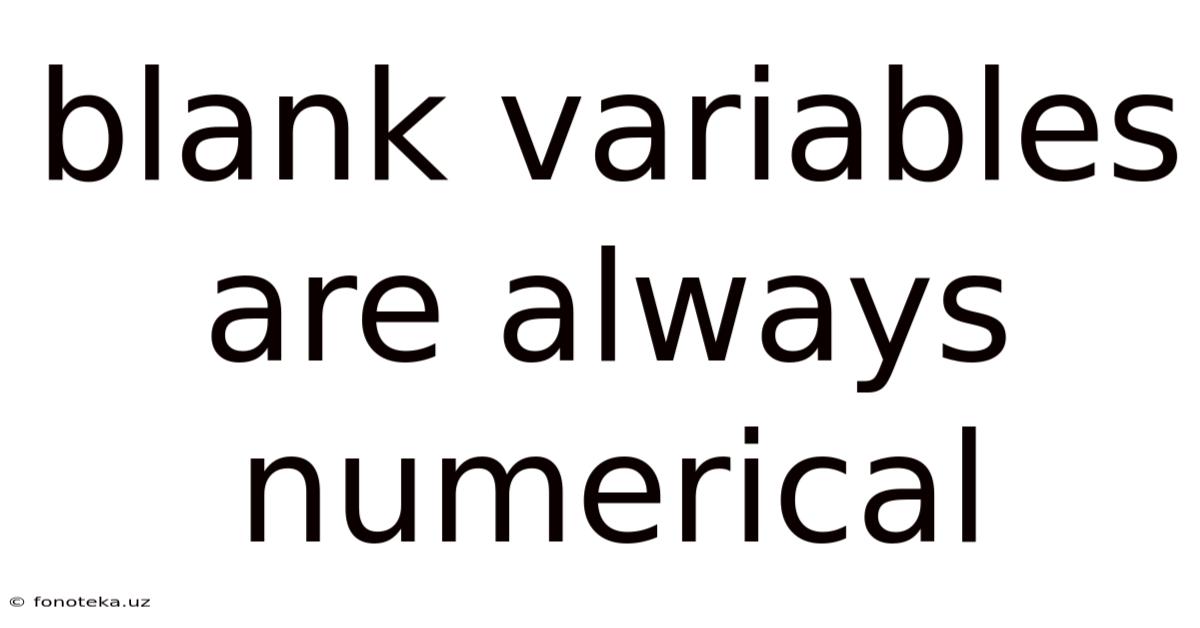Blank Variables Are Always Numerical
fonoteka
Sep 22, 2025 · 7 min read

Table of Contents
Blank Variables Are Always Numerical: A Deep Dive into Data Types and Implicit Conversions
The statement "blank variables are always numerical" is incorrect. This misconception often stems from a misunderstanding of how programming languages handle undefined or uninitialized variables and the implicit type conversions that can occur. Understanding data types, variable declaration, and the behavior of different programming languages is crucial to avoiding errors and writing robust code. This article will explore the nuances of variable initialization, the various data types available in common programming languages, and the potential pitfalls of assuming a blank variable's inherent numerical nature. We'll delve into the complexities of implicit type conversion and offer practical strategies for preventing related bugs.
Understanding Data Types
Before we address the central misconception, let's establish a firm grasp of data types. Data types define the kind of values a variable can hold and the operations that can be performed on those values. Common data types include:
- Integers (int): Whole numbers without decimal points (e.g., -2, 0, 10, 1000).
- Floating-point numbers (float, double): Numbers with decimal points (e.g., -3.14, 0.0, 2.718).
- Characters (char): Single letters, numbers, or symbols (e.g., 'A', '7', '
Latest Posts
Latest Posts
-
Convert 287 Kpa To Atm
Sep 22, 2025
-
You Perceive Yourself Through Your
Sep 22, 2025
-
Ap Bio Blast Lab Answers
Sep 22, 2025
-
Mcgraw Hill Chapter 1 Answers
Sep 22, 2025
-
What Is A Verruca Milady
Sep 22, 2025
Related Post
Thank you for visiting our website which covers about Blank Variables Are Always Numerical . We hope the information provided has been useful to you. Feel free to contact us if you have any questions or need further assistance. See you next time and don't miss to bookmark.